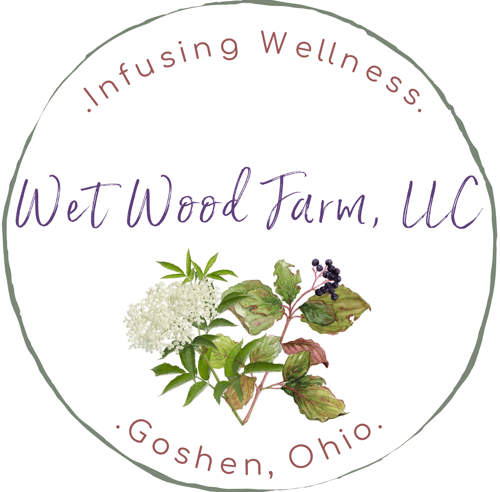Records of elderberry have been documented as far back as 400BC and has extensive history of use with the herbalists of Europe and medicinally with Native Americans.
Elder, or elderberry "trees" are deciduous flowers shrubs. Elderberry has gained enormous popularity in the recent years for its capability to reduce the severity and duration of the flu and colds as well as upper respiratory symptoms and sinus infections.
Some research has shown that when taken correctly, elderberry syrup has medicinal properties that work just as good, if not better, than popular anti- influenza virus medications. More studies are being done on elderberry to determine how extensive its health benefits are.
Elderberry has anti inflammatory effects and more research is being done to look at the elderberries health potentials due to its high polyphenol levels. Elderberry could possibly help or treat: digestive problems, cardiovascular disease and neurodegenerative disorders.
Elderberry also contains phenolic compounds. These compounds seek out free radical molecules that would damage DNA and cells of the body. Anti-oxidants, which also target free radicals, are also of abundance in this plant. Scientists have determined that both the phenolic and anti-oxidant capacity of elderberries is comparable to that of blackberries and other small berry fruit.
In early spring, elder shrubs will bloom elderflowers. If left untouched, these flowers will develop into elderberries in late summer. These flowers are not only fragrant and beautiful to look at, but they are edible as well. Elderflower is growing in popularity in its use in tea, kombucha, syrup, beer and liqueur.
Do not let the delicate appearance of these flowers fool you. Elderflower contains significant amounts and different types polyphenols than elderberries. On one particular study, the extracts in elderflowers worked just as well, if not better than elderberry in reducing inflammation. Elderflowers make an excellent cooling infusion for cold symptoms, flulike colds and mild feverish states by easing symptoms as well as countering infection ( Chevallier, 2018, p. 204) . Elderflowers can dry and tone mucous membranes lining the nose and throat, reducing sneezing, itchiness, and a runny nose during allergy season ( Chevallier, 2018, p. 204).
Herbal remedies are known to safely help coughs, headaches, skin rashes, chronic problems, preventing illness and enhancing health. Although they are natural, herbal remedies can cause side effects. For best results, they need to be used sensibly and with respect (Chevallier, 2018, p. 16).
Herbal remedies are well suited to treating everyday health problems, though the standard caution about self, or home, treatment always applies: if you are in doubt, seek immediate professional advice, especially where unwell children are concerned (Chevallier, 2018, p. 16).
Both traditional herbal medicine and modern allopathic medicine offer tremendous gifts of healing, and each system complements the other. Together they form a comprehensive system of health and healing, each having strengths and weaknesses. But knowing when to choose herbs and when to choose pharmaceutical medications is paramount (Gladstar, 2015, p. 6).
Herbal Safety
These statements have not been evaluated by the Food and Drug Administration. This product is not intended to diagnose, treat, cure, or prevent any disease.
Always consult a doctor prior to taking elder products.
Rosemary Gladstar explains elder
Citations
Chevallier, A. (2018). Herbal Remedies Handbook. New York, New York: DK Publishing.
Gladstar, R. (2015). Herbs For Children's Health. North Adams, MA: Storey Publishing.
